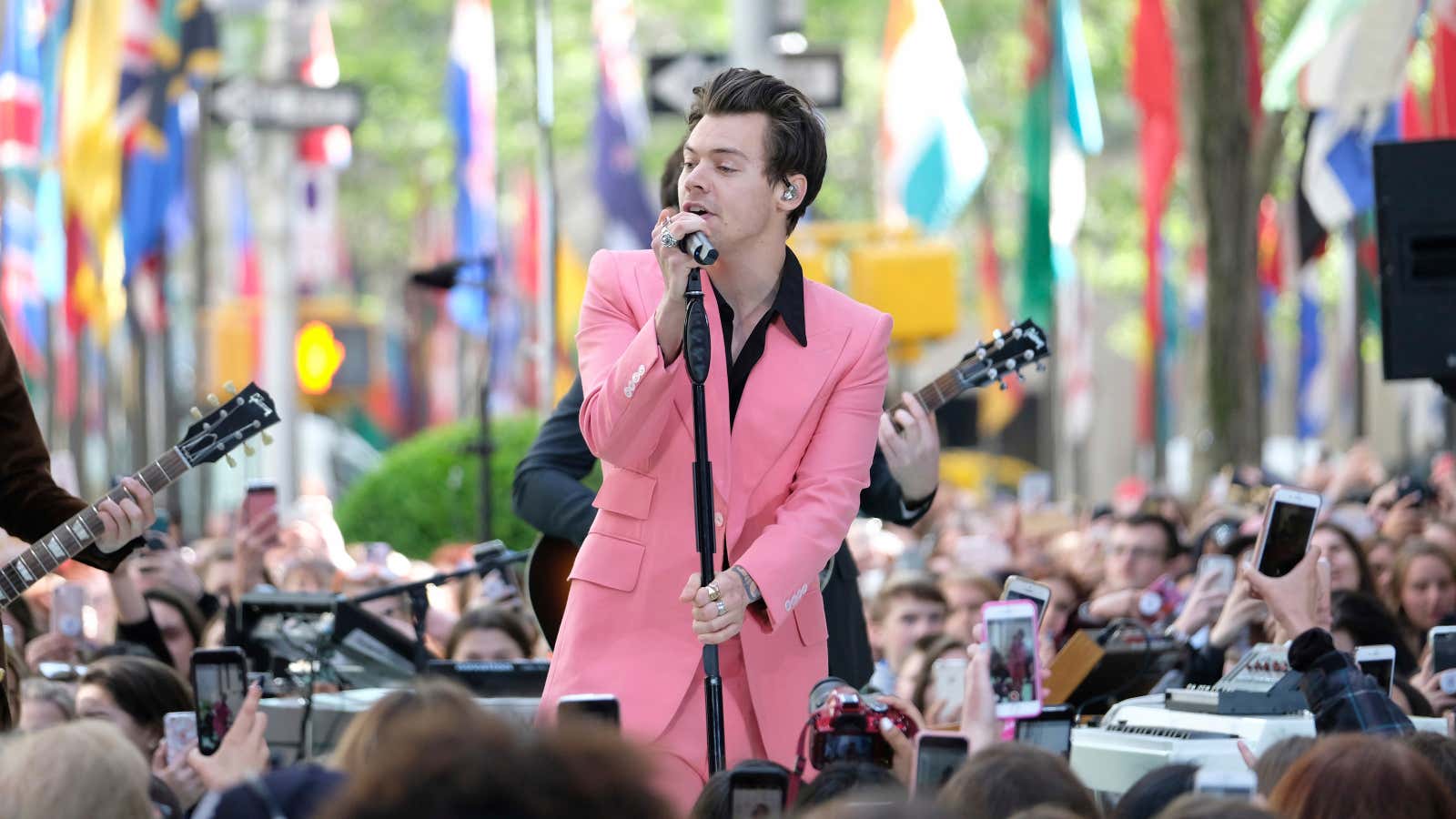Like raising a child, it takes a village to create a hit song.
According to a recent analysis from Music Week, only four of the 100 biggest hits of 2016 were written by a single band or singer. The others? Intricate collaborations between performing musicians, producers, and other behind-the-scenes songwriters—all working together to tease out the perfect beat, hook, and lyrics for chart-topping success. Often, there are samples from the past—and those creators need to be credited.
Songs from “solo” musicians like Adele, Ed Sheeran, and Taylor Swift all take a number of co-writers to produce; Mark Ronson’s “Uptown Funk” can be attributed to 13 different people, and Drake’s “One Dance”—the best-selling song of 2016—required eight writers. On average, according to the report, it takes 4.53 people to write a song that can make it into the Top 100 of the year.
Artists themselves might not be happy with having to split their royalties with more people than before. But publishers and record labels are likely eager to fit more names into a song’s credit lines for two reasons. First, collaborations encourage creativity—and pairing a big-name producer with a new artist can also help break them into the scene; secondly, hiring a crowd of writers makes the process of creating a song much faster. In the age of online music-streaming services and the immediacy they provide, speed is paramount. (Just ask Future, the rapper who is so prolific that he displaced his own number-one album with another album.)
Max Martin, the Swedish “master hooksmith” who has written 21 Billboard-topping songs over the course of his career, mused in an interview last year that hit pop songs have sped up in accordance with the quickening pace of everyday life. “Pop music follows the evolution of society in general,” he said. “Everything moves faster. Intros have gotten shorter.”
Thanks to streaming, the same frenzy has infected the writing of songs themselves.
